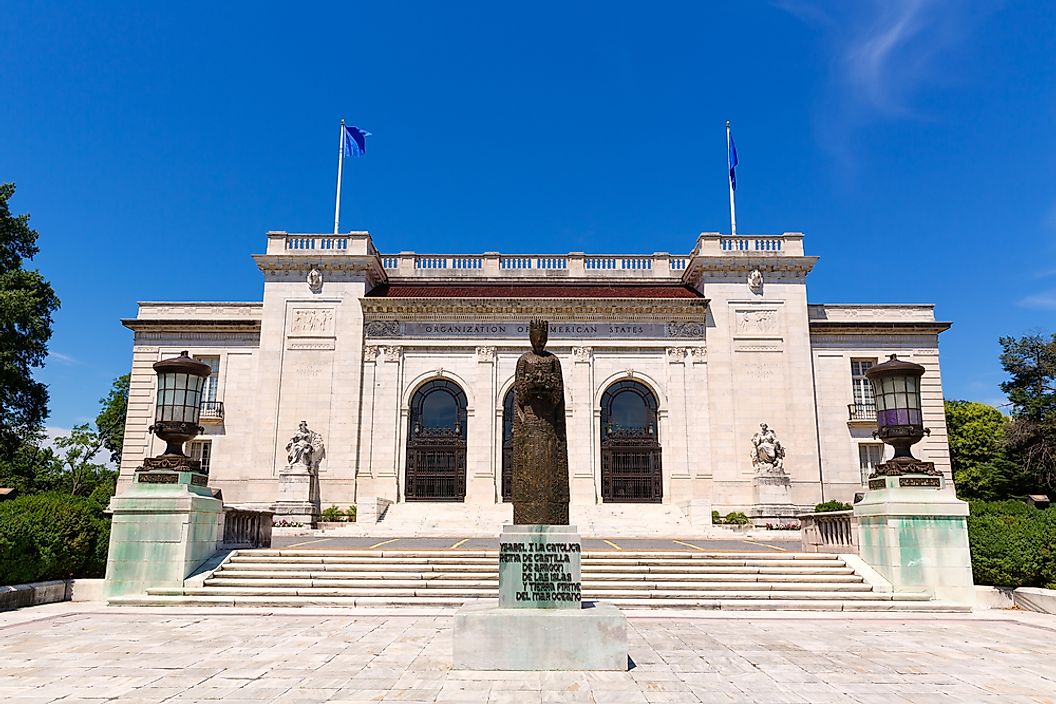RIO DE JANEIRO, BRAZIL – Despite their differences over the situation in Nicaragua, a broad majority of 26 countries joined together Tuesday, June 15, in the Organization of American States (OAS) to demand that Nicaraguan President Daniel Ortega “immediately” release jailed presidential candidates.
The OAS adopted a resolution that, without mentioning Ortega by name, calls for “the immediate release of the presidential candidates and all political prisoners.”

The initiative, pushed by Brazil, Chile, Costa Rica, Ecuador, the United States, Paraguay and Peru, easily cleared the 18-vote hurdle needed for passage, garnering the support of 26 of the 34 countries that are active members of the OAS (Cuba is a member of the organization but has not participated since 1962).
Nicaragua itself, the leftist government of Bolivian President Luis Arce, and St. Vincent and the Grenadines, an ally of Caracas, voted against the measure.
In addition, five countries abstained: Honduras, Belize, Dominica, Mexico, and Argentina.
UNEQUIVOCAL CONDEMNATION OF THE ARREST OF OPPOSITION LEADERS
The text of the resolution consists of four points. The most important is the one that resolves to condemn “the arrest, harassment and arbitrary restrictions” imposed on presidential candidates, political parties and the media in Nicaragua.
This item is in direct response to the arrest this weekend of six Sandinista dissidents, including former guerrillas Dora María Téllez and Hugo Torres, and former Deputy Foreign Minister Víctor Hugo Tinoco.
In addition, Nicaraguan police, led by Francisco Diaz, a close associate of President Ortega, are detaining four presidential candidates for the November elections, Cristiana Chamorro, Arturo Cruz, Felix Maradiaga, and Juan Sebastian Chamorro Garcia.
Most of the detained opposition members, including three of the four presidential candidates, are under investigation for “inciting foreign interference in internal affairs” and “calling for military intervention” against the Ortega government, among other charges.
Second, the resolution expresses the OAS’s “grave concern” over the Nicaraguan government’s failure to implement electoral reforms aimed at guaranteeing “free” and “fair” elections on November 7, in which Ortega will seek his third consecutive re-election.
Read also: Check out our coverage on Nicaragua
The resolution also “urges” the Nicaraguan government to take “immediate” action to ensure transparent elections and calls for independent election monitoring by the OAS and other countries.
Finally, the 26 nations that voted in favor of the draft agreed to follow closely the electoral process in Nicaragua with a view to “possibly” presenting it to the General Assembly, the main political forum of the OAS, which brings together the foreign ministers of all member states.
NICARAGUA REJECTS “INTERFERENCE” BY WASHINGTON AND ITS ALLIES
In response to the resolution, Nicaraguan Ambassador to the OAS Luis Alvarado expressed his refusal to discuss in an international forum his country’s electoral process, which he considers an internal matter.
For this reason, he warned that the Ortega government does not recognize the legitimacy of the resolution and rejects any “interference” by the OAS, since it acts on orders from Washington.
“We condemn the interference practices of this discredited organization and its General Secretariat in matters of internal jurisdiction of Nicaragua and other member states of the organization,” chided Alvarado, who interrupted the session several times to express his disapproval.
DEBATE REIGNITES OVER SUSPENSION.
The Ortega government maintains a very adversarial relationship with the OAS and its Secretary General Luis Almagro, who in January 2019 initiated the process to apply the Inter-American Democratic Charter to Nicaragua, which could open the door to suspending the country from the organization.
That process has made little progress since it began more than two years ago because it requires a broad two-thirds majority of member states, many of whom feared that suspending Nicaragua would serve to close the door on diplomacy, as happened with the Venezuelan government of Nicolás Maduro.
However, Ortega’s actions in recent weeks, including the detention of presidential candidates, have reignited the debate over the possibility of suspending Nicaragua, a diplomatic source told Efe.
Suspension is the highest sanction available to the OAS and has been applied to only two countries in its 70-year history: Honduras, in 2009, after the coup that removed Manuel Zelaya as president; and Cuba, in 1959 after the triumph of Fidel Castro’s revolution and in the midst of the Cold War.

